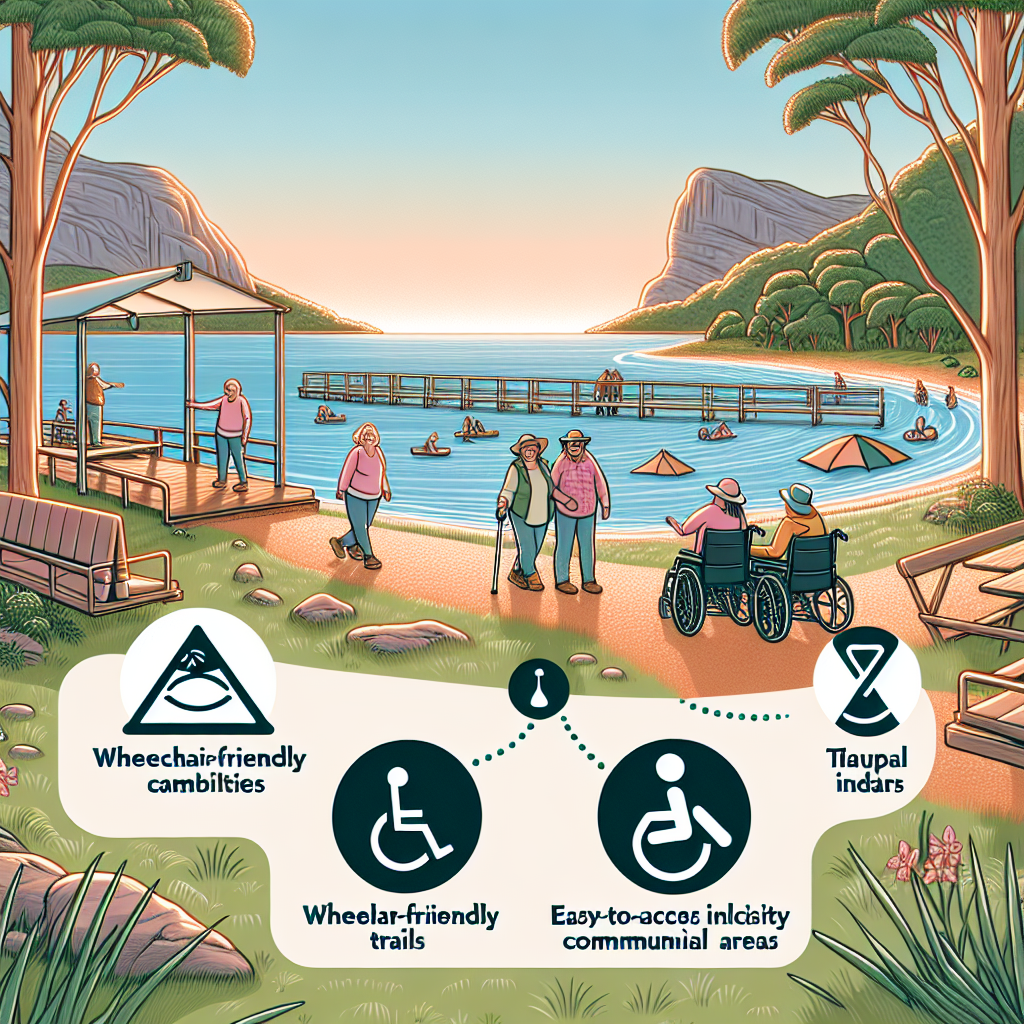

Australia is known for its stunning landscapes and outdoor beauty, but what about disabled individuals who want to experience the joys of camping? In this article, we explore whether there are camping options available for those with disabilities in Australia. Discover the accessibility features and inclusive accommodations that make it possible for everyone to enjoy the great outdoors. From wheelchair-friendly facilities to specialized camping equipment, find out how Australia is making camping accessible to all.
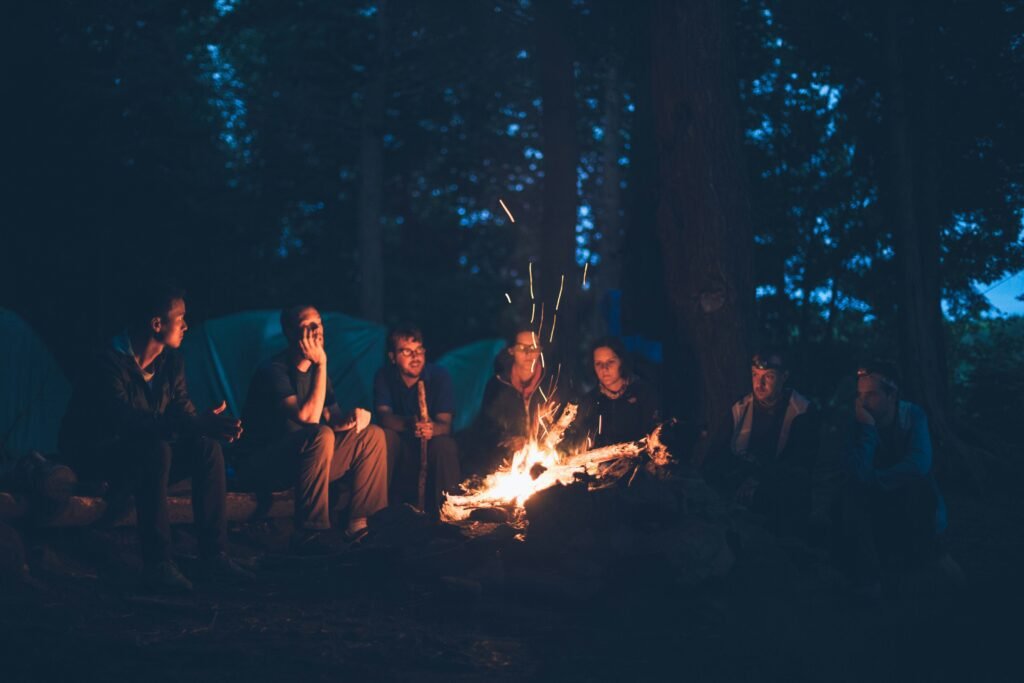

Accessible Campsites in Australia
Introduction to accessible campsites
If you’re a disabled individual who loves the outdoors, you’ll be pleased to know that there are accessible campsites in Australia that cater specifically to your needs. These campsites are designed to provide inclusive and enjoyable camping experiences for individuals of all abilities. Whether you have a physical disability, visual impairment, or any other condition, there are campsites available that ensure you can fully enjoy the beauty of nature.
Features of accessible campsites
Accessible campsites in Australia offer a range of features to accommodate disabled individuals. Firstly, they have designated accessible campsites that are designed with wider pathways and suitable surfaces to navigate easily with mobility aids. These campsites also provide level ground for setting up tents or parking caravans, ensuring a comfortable stay. Additionally, accessible campsites often have accessible amenities and facilities, such as wheelchair accessible toilets and showers, to make your camping experience more convenient.
Benefits of accessible campsites
Accessible campsites offer numerous benefits to disabled individuals. Firstly, they enable you to connect with nature and enjoy the great outdoors, something everyone should have the opportunity to experience. Accessible campsites also promote inclusivity and allow you to bond with family and friends regardless of their abilities. Additionally, camping provides a sense of freedom and independence, as you can explore and engage in outdoor activities at your own pace. Accessible campsites in Australia ensure that disabled individuals can participate fully in the camping experience and reap all these benefits.
Accessible National Parks in Australia
Overview of accessible national parks
Australia is renowned for its stunning national parks, and many of them have made efforts to offer accessible options for disabled individuals. These national parks provide accessible infrastructure and services to ensure that everyone can enjoy the natural beauty they have to offer. From wheelchair-friendly trails to accessible picnic areas, national parks in Australia are striving to create inclusive spaces for all visitors.
Accessible trails and pathways
One of the key features of accessible national parks is the presence of trails and pathways that are designed to cater to disabled individuals. These trails are generally wider, with a smoother surface suitable for wheelchair users and individuals with mobility aids. They often have handrails, ramps, and leveled sections to assist with navigation. Accessible trails allow disabled individuals to explore and immerse themselves in the stunning landscapes, making the beauty of national parks accessible to all.
Facilities and amenities for disabled individuals
Accessible national parks also provide facilities and amenities specifically designed for disabled individuals. Wheelchair-accessible toilets and picnic areas are common in these parks, ensuring that basic necessities are easily accessible. Some parks even offer rental equipment, such as adaptive walking aids or beach wheelchairs, allowing disabled individuals to fully enjoy the park’s offerings. These amenities make it easier for disabled individuals to spend extended periods in the national parks, enjoying everything they have to offer.
Camping Equipment and Facilities for Disabled Individuals
Specialized camping equipment
Camping equipment has come a long way in terms of accessibility and inclusivity. There are now specialized camping equipment and gear available that cater to disabled individuals. For example, there are specially designed tents with wider entrances to accommodate wheelchairs or mobility aids. Camping chairs with built-in support and adjustable features are also available, providing comfortable seating options for individuals with mobility limitations. Additionally, there are specialized sleeping systems that offer enhanced support and comfort, ensuring a good night’s sleep for disabled campers.
Accessible camping facilities
Accessible camping facilities are essential for disabled individuals to enjoy a comfortable camping experience. Many campsites now offer accessible amenities, such as accessible toilets, showers, and cooking facilities. These facilities are designed with wider entrances, grab bars, and lowered countertops to cater to individuals with disabilities. Accessible campsites may also have designated parking spaces close to the camping areas for convenient access. All of these features contribute to creating an inclusive environment where disabled individuals can fully participate in camping activities.
Equipment and facilities rental options
For those who want to try camping but don’t have access to specialized equipment, there are rental options available. Various organizations and camping sites provide rental services for specialized camping equipment, such as adaptive camping chairs, mobility scooters, or accessible tents. This allows disabled individuals to experience camping without the need to invest in their own equipment. Rental options are particularly beneficial for those who are unsure about their camping preferences or want to try different equipment before making a purchase.
Accessible Camping Organizations and Services
National disability camping organizations
In Australia, there are national disability camping organizations dedicated to promoting and providing accessible camping experiences. These organizations work to ensure that camping sites across the country are inclusive and accessible for disabled individuals. They collaborate with campsites, national parks, and other stakeholders to advocate for accessibility and provide resources for disabled campers. These organizations often have online platforms where individuals can find information about accessible campsites, equipment rentals, and support services.
Local support groups and services
In addition to national organizations, local support groups and services play a crucial role in facilitating accessible camping experiences. These support groups provide a network of like-minded individuals who can share experiences, advice, and recommendations related to accessible camping. They may organize group camping trips specifically for disabled individuals, fostering a sense of community and camaraderie. Local services, such as accessible transportation options or personal assistance programs, may also be available to help disabled individuals navigate the logistics of camping.
Accessible camping tours and trips
For those who prefer a more structured camping experience, accessible camping tours and trips are an excellent option. These tours are specifically designed for disabled individuals and often include transportation, accommodation, and guided activities. Accessible camping tours provide a hassle-free way to enjoy the outdoors, as all logistical aspects are taken care of. Experienced staff and guides ensure that disabled individuals have the support they need throughout the trip. These tours are a fantastic opportunity to explore different regions of Australia and create memorable camping experiences.
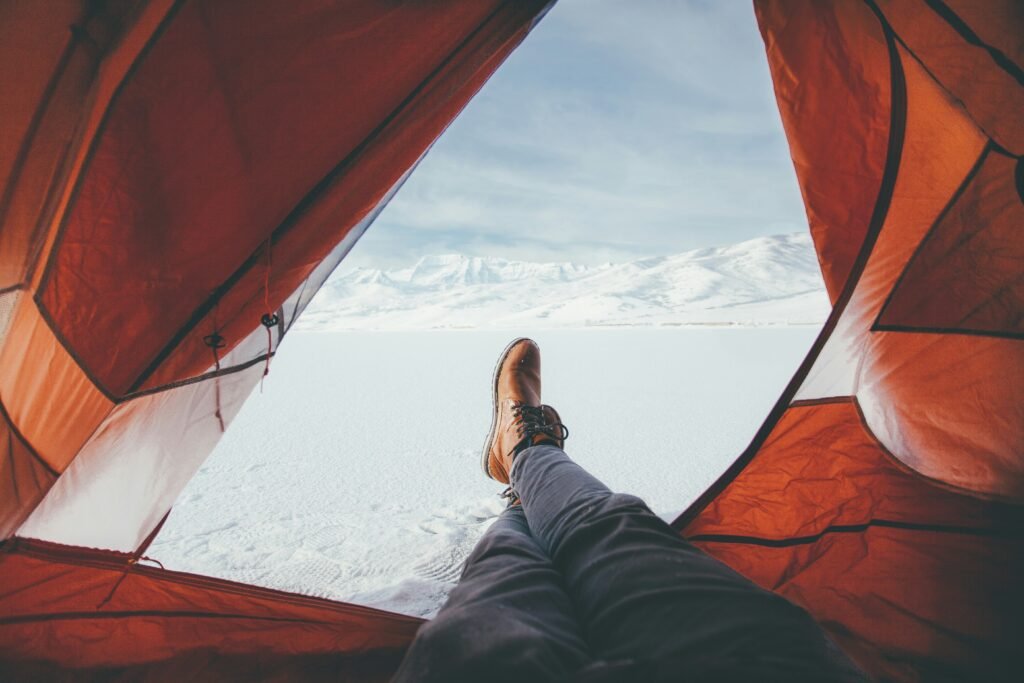

Accessible Beach Campsites in Australia
Introduction to accessible beach campsites
Australia is known for its stunning beaches, and fortunately, there are accessible beach campsites that allow disabled individuals to enjoy the breathtaking coastal landscapes. Accessible beach campsites are designed to offer inclusive experiences by providing accessible amenities and ensuring that wheelchair users can access the beach and enjoy seaside activities with ease.
Beach wheelchair availability
One of the key features of accessible beach campsites is the availability of beach wheelchairs. These specially designed wheelchairs have large, wide wheels that can easily maneuver on sand. They allow disabled individuals to access the beach and explore the shoreline, dip their toes in the water, or even go for a swim with the assistance of beach-specific mobility aids. Beach wheelchairs are available for rental in many accessible beach campsites, making the beach accessible to all.
Facilities and amenities for disabled beach campers
Accessible beach campsites provide various facilities and amenities to ensure a comfortable and enjoyable camping experience for disabled individuals. These campsites often have accessible accommodation options, as well as wheelchair-friendly pathways leading to the beach and other facilities. Accessible toilets and showers are available in close proximity to the beach, making it convenient for disabled campers. Additionally, some beach campsites may offer accessible picnic areas or BBQ facilities, allowing everyone to fully enjoy beachside dining and relaxation.
Accessible Camping in State Parks
Overview of accessible state parks
State parks in Australia offer a diverse range of camping opportunities, and many have made efforts to provide accessible options for disabled individuals. Accessible state parks cater to the needs of disabled campers by offering accessible campsites, facilities, and amenities. These parks allow disabled individuals to experience the unique landscapes and natural wonders that each state has to offer.
Accessible campsites within state parks
Accessible state parks include designated campsites that cater specifically to disabled individuals. These campsites are designed with wider pathways and suitable surfaces to ensure easy access for wheelchair users and other individuals with mobility limitations. The campsites provide level ground and accessible facilities, such as accessible toilets and showers, ensuring a comfortable and enjoyable camping experience. Accessible campsites within state parks also often have additional features like accessible picnic areas or BBQ facilities to enhance the camping experience for disabled campers.
Facilities and amenities for disabled campers
State parks strive to provide accessible facilities and amenities within their camping areas to cater to disabled campers’ needs. Accessible toilets and showers with appropriate grab bars and lowered countertops are common in accessible state parks. Some parks may offer accessible kiosks or visitor centers with friendly staff who can provide information and assistance. These parks also take into consideration disabled individuals’ safety, with accessible emergency services and evacuation plans in place. The facilities and amenities provided ensure that disabled individuals can fully enjoy their camping experience while feeling supported and accommodated.
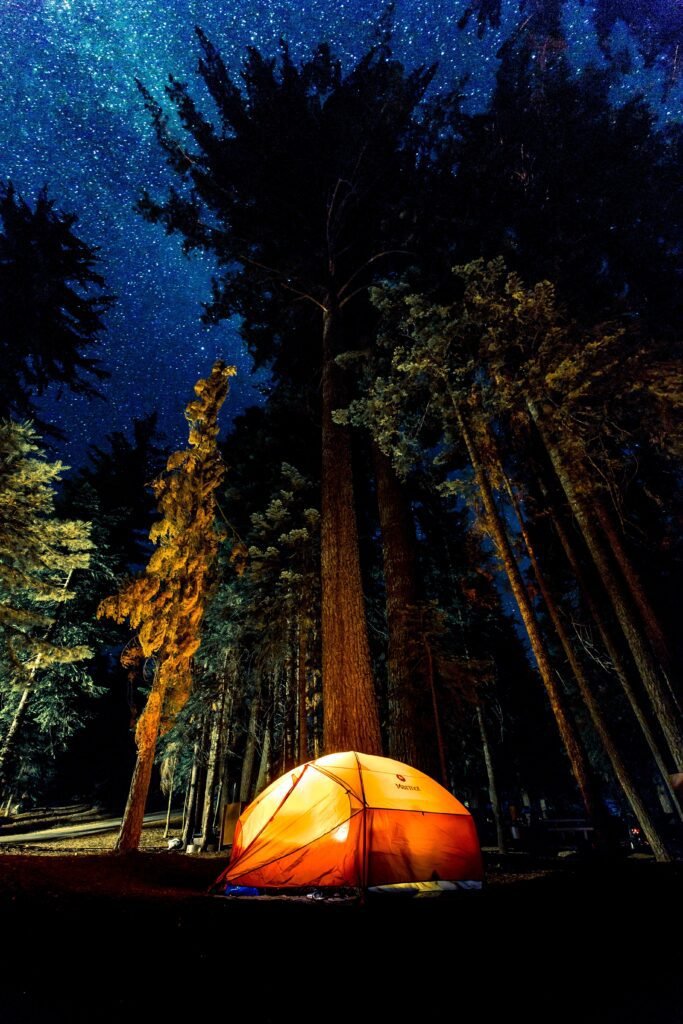

Campsites with Accessible Cabins
Introduction to campsites with accessible cabins
Campsites with accessible cabins are an excellent option for disabled individuals who require accessible accommodation during their camping trip. These campsites provide cabins designed to cater to the specific needs of disabled individuals, ensuring a comfortable stay while enjoying the beauty of nature.
Features of accessible cabins
Accessible cabins within campsites are designed with various features to accommodate disabled individuals. They typically have widened doorways, spacious interiors, and appropriate accessibility aids like grab bars and lower countertops. Accessible cabins often include amenities such as accessible kitchens, bedrooms, and bathrooms, allowing disabled individuals to have a self-sufficient camping experience. Additionally, these cabins may have ramp access and suitable parking spaces for ease of entry and mobility.
Availability and reservation information
Campsites with accessible cabins often require advance reservations due to their limited availability. It’s recommended to contact the specific campsite or visit their website to check cabin availability and make a reservation. Some campsites may have specific reservation processes or requirements for disabled campers, so it’s important to inquire beforehand. By securing a reservation, disabled individuals can ensure that they have access to suitable accommodation during their camping trip.
Accessible Camping Planning and Resources
Preparation and planning tips
Planning for an accessible camping trip requires some additional considerations, but with proper preparation, it can be a smooth and enjoyable experience. Here are some tips to help you plan for an accessible camping trip:
-
Research accessible campsites and national parks: Look for information on accessible campsites and national parks that cater to your specific needs. Consider factors such as accessible trails, amenities, and parking spaces to ensure a suitable camping experience.
-
Check equipment requirements: Determine what specialized camping equipment or gear you may need and make arrangements to ensure its availability. If renting equipment, confirm reservation details and pickup locations in advance.
-
Contact campsites and national parks: Reach out to the campsites or national parks you plan to visit to discuss your specific requirements. This will help ensure that their facilities and services meet your needs and allow them to offer any necessary assistance during your stay.
-
Plan accessible routes and activities: Consider the accessibility of trails, pathways, and attractions within the camping area. Plan your activities accordingly, ensuring that you can comfortably navigate and participate in the experiences offered.
-
Pack essentials and medications: Make a checklist of essential items you will need during your camping trip, including any necessary medications. Ensure you have an ample supply and pack them securely alongside other camping essentials.
Useful resources for disabled campers
There are several resources available to assist disabled campers in planning their camping trips:
-
Accessible camping websites: Numerous websites provide information on accessible camping sites, including facilities and amenities. These websites often offer user reviews and ratings, providing insights from others who have camped at these locations.
-
National disability camping organizations: The national disability camping organizations mentioned earlier are excellent resources for information on accessible campsites, rental equipment, and support services.
-
Local support groups and forums: Joining local support groups or engaging in online forums allows you to connect with individuals who have firsthand experience with accessible camping. They can provide valuable insights, tips, and recommendations.
-
Government resources: Various government websites and publications provide information on accessible camping options within their respective jurisdictions. These resources may offer detailed accessibility guides, maps, and other helpful information for disabled campers.
Safety considerations for disabled individuals
While camping is generally a safe activity, it’s important to take additional safety considerations into account as a disabled individual. Here are some safety tips:
-
Share your plans: Inform a trusted friend or family member about your camping plans, including the location, duration, and contact details. Provide them with a copy of your itinerary so they know where you will be.
-
Carry personal identification: Keep identification on you at all times, including your name, contact information, and any relevant medical information. If possible, wear a medical alert bracelet or necklace to provide essential information to emergency responders.
-
Be mindful of weather conditions: Keep an eye on weather forecasts for the camping area and plan accordingly. Extreme weather conditions or natural disasters may require you to modify or postpone your camping trip.
-
Carry emergency communication devices: Have a reliable means of communication, such as a mobile phone or two-way radio, in case of emergencies. Ensure that your devices are fully charged and have access to a power source or portable charger.
-
Pack a first aid kit: Include a well-stocked first aid kit that caters to your specific needs. Include any necessary medications, along with basic supplies such as bandages, antiseptics, and pain relievers.
By taking these safety considerations into account and being prepared, you can enjoy a safe and worry-free camping experience.
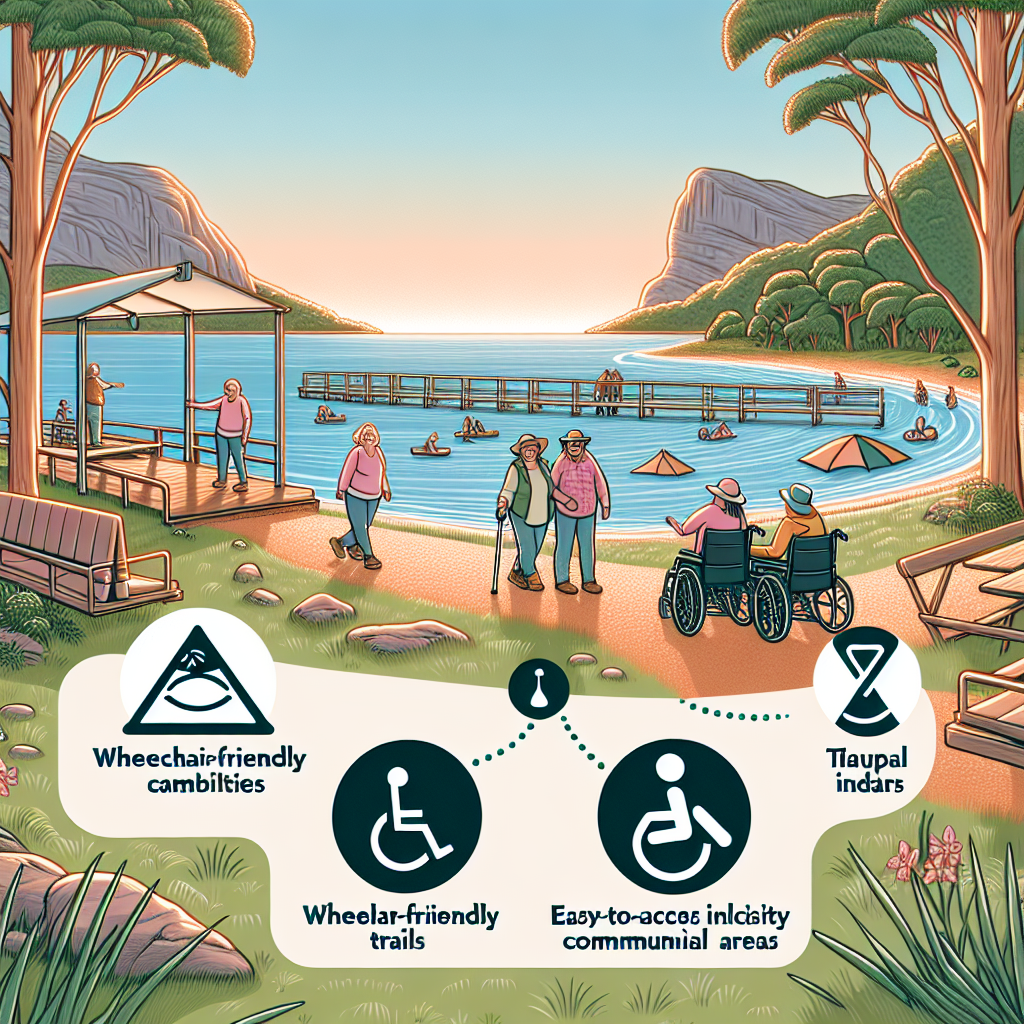

Accessible Camping Experiences and Testimonials
Real-life stories of disabled individuals camping in Australia
Real-life stories of disabled individuals camping in Australia highlight the positive impact that accessible camping can have. These stories showcase the resilience, joy, and sense of adventure that disabled individuals experience through camping. Whether it’s conquering a challenging trail, sharing laughter around a campfire, or feeling the tranquility of nature, these stories illustrate that disabilities should not limit one’s ability to enjoy the wonders of camping.
Challenges and triumphs faced by disabled campers
Disabled campers may encounter unique challenges while camping, but these challenges can be overcome with determination and the right support. Accessible camping allows disabled individuals to conquer physical barriers and experience a sense of achievement. While challenges like accessible transport, navigating uneven terrain, or finding suitable facilities may arise, accessible campsites and organizations provide solutions and support to make camping a rewarding experience for disabled individuals.
Importance of inclusive camping experiences
Inclusive camping experiences are vital as they foster a sense of belonging, promote social connections, and break down barriers between disabled and non-disabled individuals. By providing accessible campsites and facilities, we create environments where everyone can come together, share experiences, and learn from one another. Inclusive camping experiences also challenge societal perceptions of disability and showcase the diverse abilities and strengths of disabled individuals. By ensuring that camping is accessible to all, we can create a more inclusive and accepting society.
Conclusion
Accessible campsites in Australia provide disabled individuals with the opportunity to enjoy the beauty of nature and experience the joys of camping. From accessible trails in national parks to campsites with specialized equipment and facilities, there are options available to cater to different needs and preferences. The benefits of accessible camping are manifold – it promotes inclusivity, provides a sense of freedom and independence, and allows for unforgettable outdoor experiences. Through the dedication of organizations and the support of local communities, Australia is making progress in making camping accessible to all. So why wait? Grab your camping gear and embark on a memorable adventure in the great outdoors. Happy camping!
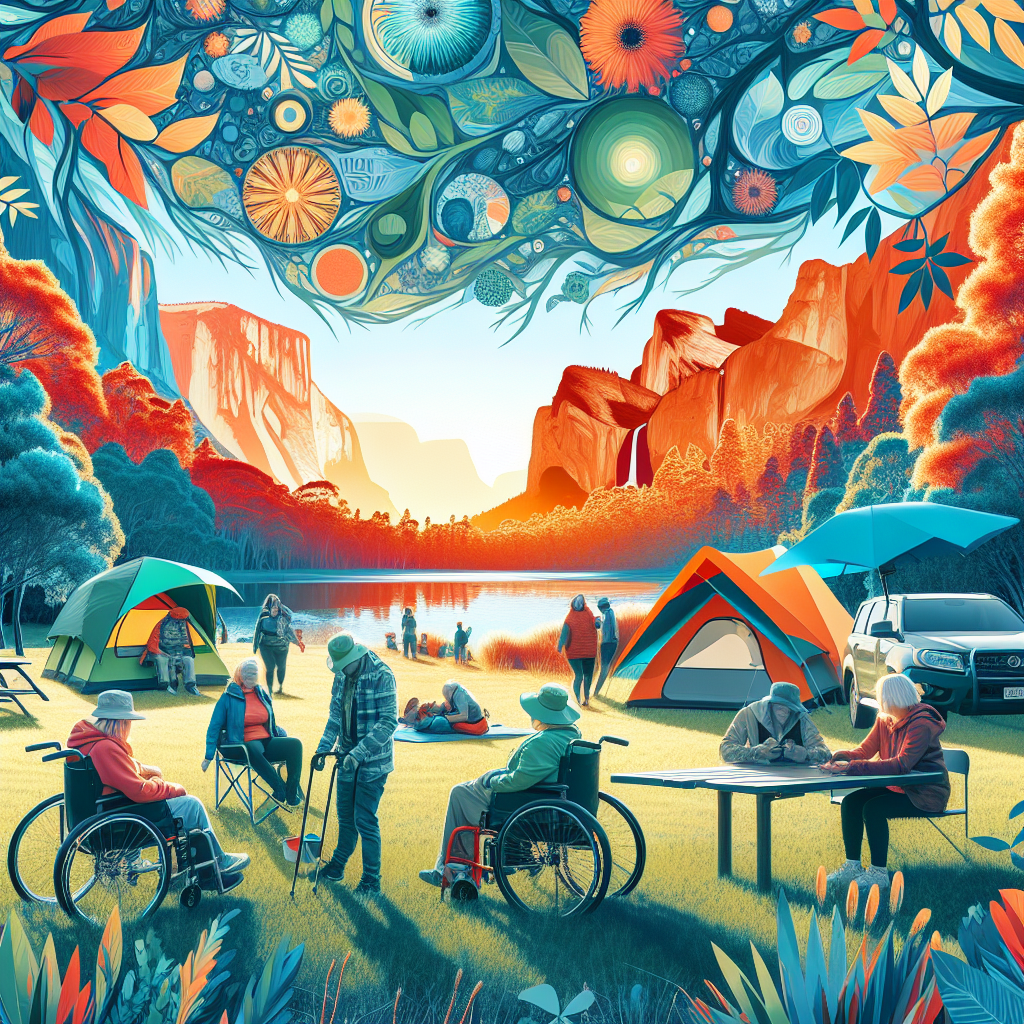

Leave a Reply